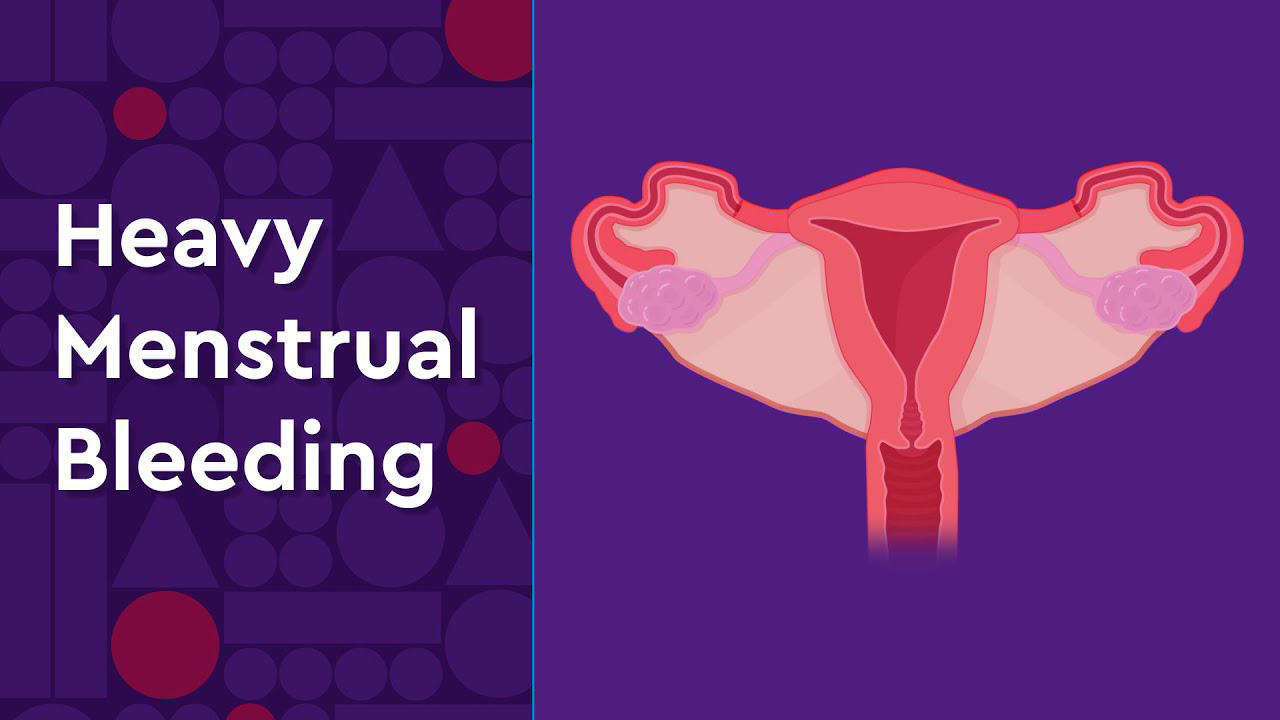Uterine fibroids also known as leiomyomata, are known to be affecting millions of females around the globe. It is most common during the reproductive age of women. Out of the 75% of women who develop fibroids, 30% experience menorrhagia i.e. heavy bleeding. Therefore, heavy menstrual bleeding is a major symptom of fibroid development. These non-cancerous growths develop in the uterus. Even though they sound scary uterine fibroids are not life-threatening typically, they can be treated. The symptoms of uterine fibroids may vary from woman to woman, for some no symptoms may appear while for some symptoms that follow may appear:
- Heavy menstrual bleeding
- Longer and more frequent periods
- Bleeding during and between periods
- Anemia
- Abdominal cramps
- Painful sex
- Bladder pressure
- Miscarriage
- Infertility
Heavy Menstrual bleeding
Menorrhagia is menstrual bleeding that lasts for more than 7 days. Bleeding these days is extremely heavy. How to know if you are bleeding heavily? It is easy to know, if you have to change the pad or tampon in less than 2 hours and you are passing larger clots then it definitely is heavy bleeding. If this heavy bleeding is left untreated, it will cause you extreme discomfort and stop you from loving your life the way you should be living. This can also lead to anemia, it is a blood problem where you are left feeling tired and weak. Bleeding problems can lead to other health problems as well and should be treated.
The link between uterine fibroids and heavy menstrual bleeding
The period that requires frequent changing of sanitary products is related to uterine fibroids. There is no obvious reason why uterine fibroids cause heavy menstrual bleeding but there are several theories:
- Uterine fibroids press against the uterine lining and this causes the lining to bleed more than usual.
- Due to the presence of a uterine fibroid, the uterus will not be able to contract properly hence the bleeding cannot be stopped.
- Fibroids can stimulate the growth of the blood vessels, which will lead to irregular and heavy periods and even spotting when you are not on your period.
- The levels of prostaglandins (hormones) increase, causing heavier bleeding.
The heavy bleeding is usually related to where the uterine fibroid has grown, the position and the location, the uterus contractility, and distortions in the lining of the uterus.
Confirmation of the uterine fibroid
If you, as a woman, are experiencing very heavy and abnormal period blood, it is extremely important to contact your doctor. For women, changes in their menstrual cycles mean a lot as they have a lot to say about the body health of women. Hence, it is significant to find the root cause of the heavy bleeding during your menstrual cycle. Heavy bleeding can be due to several reasons including kidney issues, liver disease, thyroid problems, miscarriage, endometriosis, polyps, irregular ovulation, etc.
Therefore, to identify that the core reason is the development of the uterine fibroids your doctor is most likely to perform a pelvic exam. A pelvic exam will help your doctor examine the irregularities, if any, in the shape and size of your uterus. This will indicate the presence of uterine fibroids. Other tests that can be performed to confirm the diagnosis are Ultrasound and pelvic MRI.
Treatment for uterine fibroids and heavy menstrual bleeding
In order to improve the quality of life you need to treat the heavy menstrual bleeding that is being caused by the uterine fibroids. Bleeding a lot can make you anemic, you will experience fatigue, extreme headaches, hair loss, insomnia, palpitation, cravings, etc.
Potential treatments for this condition are:
- Take birth control pills
- Use hormonal IUDs
- Hormones can be injected via injections
- Hormonal and non-hormonal oral medicines can be taken
- Fibroids can be removed surgically
- Hysterectomy can be performed
Treatment of such a condition is usually based on the age, desire for fertility, size, location, and number of fibroids in a woman. Therefore, it is individualized. You need to work with a specialist to find the best and most minimally invasive method to treat your problem.




